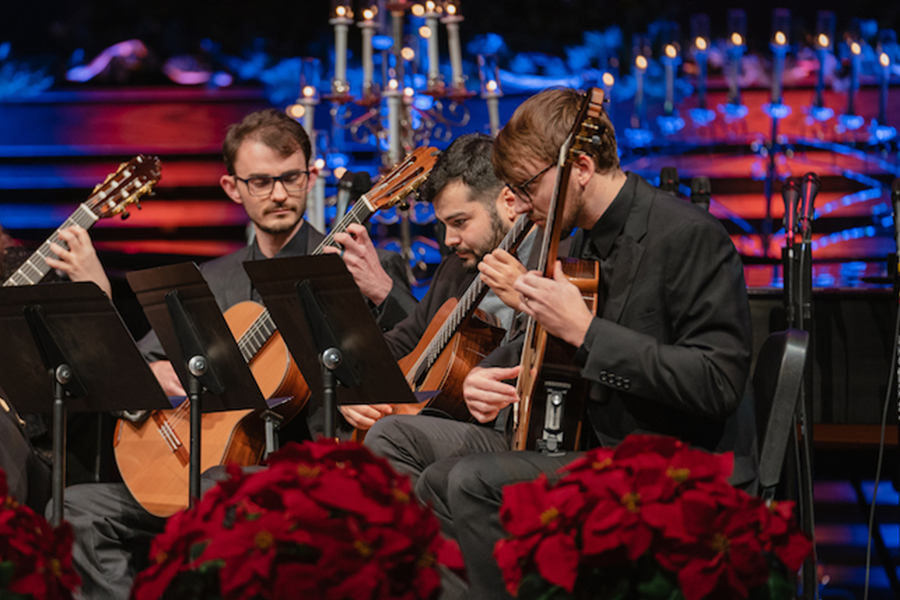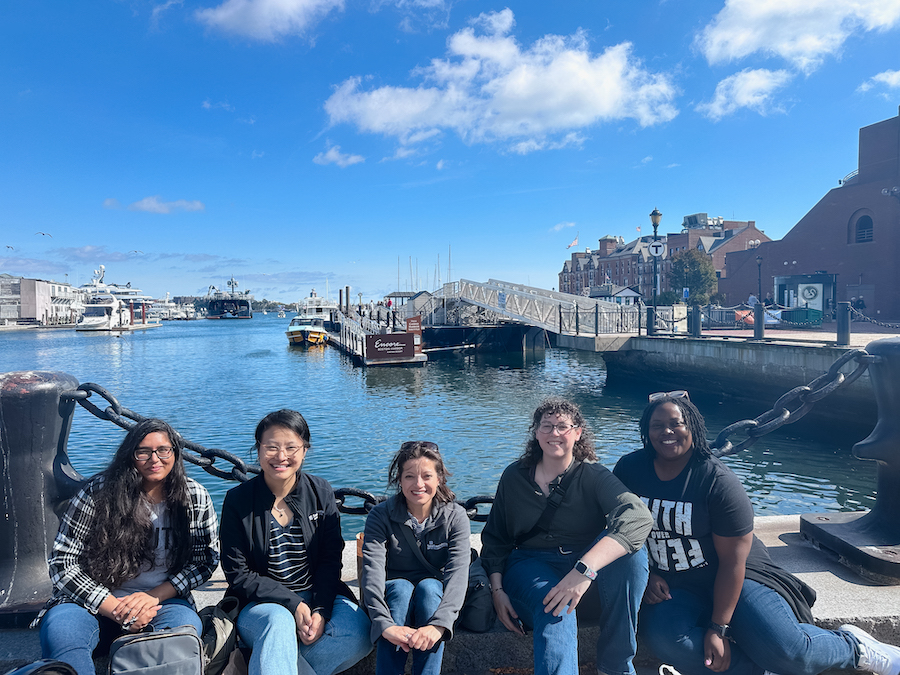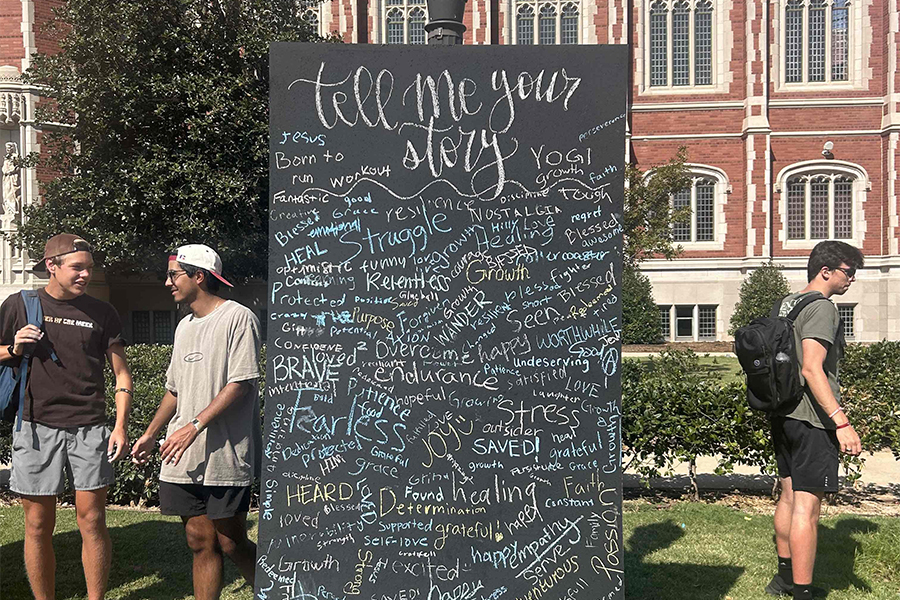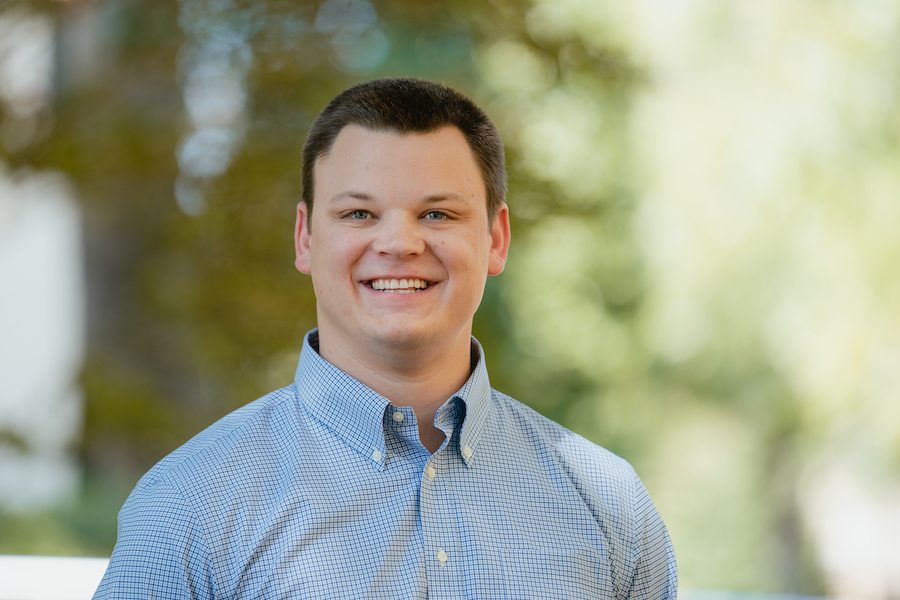Ph.D. students teach, lead evangelism in Zambia
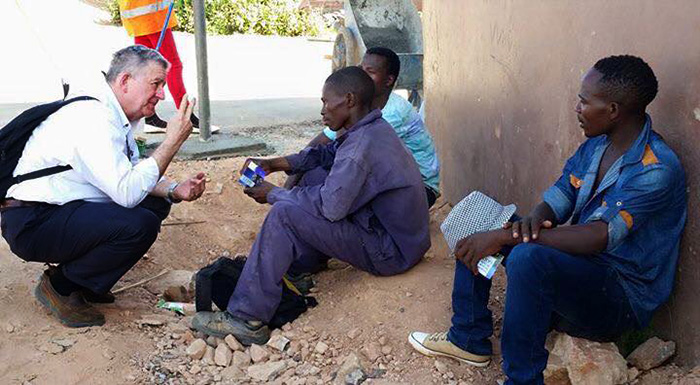
Over winter break, five Southwestern Seminary Ph.D. students, under the supervision of professors Keith Eitel and Dean Sieberhagen, taught at the Zambia Baptist Theological Seminary in Lusaka. Spending four hours each morning instructing on the topics of world religions and evangelism, the Southwesterners led Zambian students in engaging local villagers with the Gospel in the afternoons. Finding what Eitel characterizes as “an amazingly ripe set of hearts,” over the course of five days, these evangelistic efforts yielded 48 professions of faith.
“We were pleasantly surprised that we met with such good response to the witnessing events,” says Eitel, dean of the Fish School of Evangelism and Missions at Southwestern. “We hoped that would happen, but we didn’t realize there would be that degree of receptivity.”
Three of the five Ph.D. students are missionaries enrolled in Southwestern’s World Christian Studies doctoral program. Collectively, they taught a class on world religions, sharing about the history, beliefs and practices of Islam, Hinduism and the Baha’i faith, as well as reflecting on methods for engaging adherents of these religions in the Zambian context. The other Ph.D. students—both in the residential program in Fort Worth—each taught a class on evangelism. This theoretical learning was then put into practice in the latter part of each day.
“I found the Zambian students to be way ahead of typical American students in their ability to discern various cultural and social cues when engaging those from diverse religious and cultural backgrounds,” says Kevin Douglas,* one of the world religions instructors. “I was especially inspired by their boldness in engaging people in evangelism.”
In one instance, two Zambian seminary students engaged two men in a mosque. Employing what the Ph.D. students had taught them, they listened first in order to respond thoughtfully and persuasively to the Muslims’ ideas and conceptions of Christ. “They learned firsthand about the importance of assuming the posture of a learner and of the necessity of answering questions about the reliability of Scripture, the historicity of the death of Jesus, and the intelligibility of God as triune in order to cultivate trust and foster greater receptivity to the Gospel,” Douglas says.
Another student visited a Hindu temple and struck up a conversation with devotees there. The student learned about karma, reincarnation and the Hindu value of tolerance, which Douglas says “cannot be ignored in conversing effectively with Hindus.”
Inspired by this interaction, the student brought his skeptical brother-in-law to meet with his fellow students and professors over lunch. He hoped the conversation would expose and obliterate his brother-in-law’s willful resistance to Christ that had been hidden behind empty intellectual arguments.
“Dr. Eitel’s vulnerable and transparent sharing of his personal encounter with Christ powerfully communicated the love of Christ and his desire for a personal relationship with him,” Douglas recalls. “Although I think Dr. Eitel’s testimony made a significant impression on the man, he was unwilling to publically admit it.”
Though the man remained resistant, Douglas says he, along with the majority of the people they encountered, were “refreshingly transparent, warm and engaging,” and that spiritual conversations were “easy and comfortable,” regardless of circumstance. “And even in disagreement,” he continues, “the people of Zambia were generally open-hearted to engage again in honest discussion.”
Moses Audi, another Southwestern Ph.D. student, says he was particularly encouraged by the Zambian students’ concern for the lost and commitment to evangelism. “They went out to initiate evangelistic conversation with Muslims and Hindus for the first time,” he says. “The experience helped them realize that people of other faiths are not far away and there is something they can do. There was commitment to continue with these kinds of contacts.”
“I am glad for the opportunity to visit that seminary and to see what God is doing in that part of the world,” Audi concludes. “I am able to pray for them better—that God’s grace may continue to renew their strength for ministry.”
*Name changed to protect mission work.
